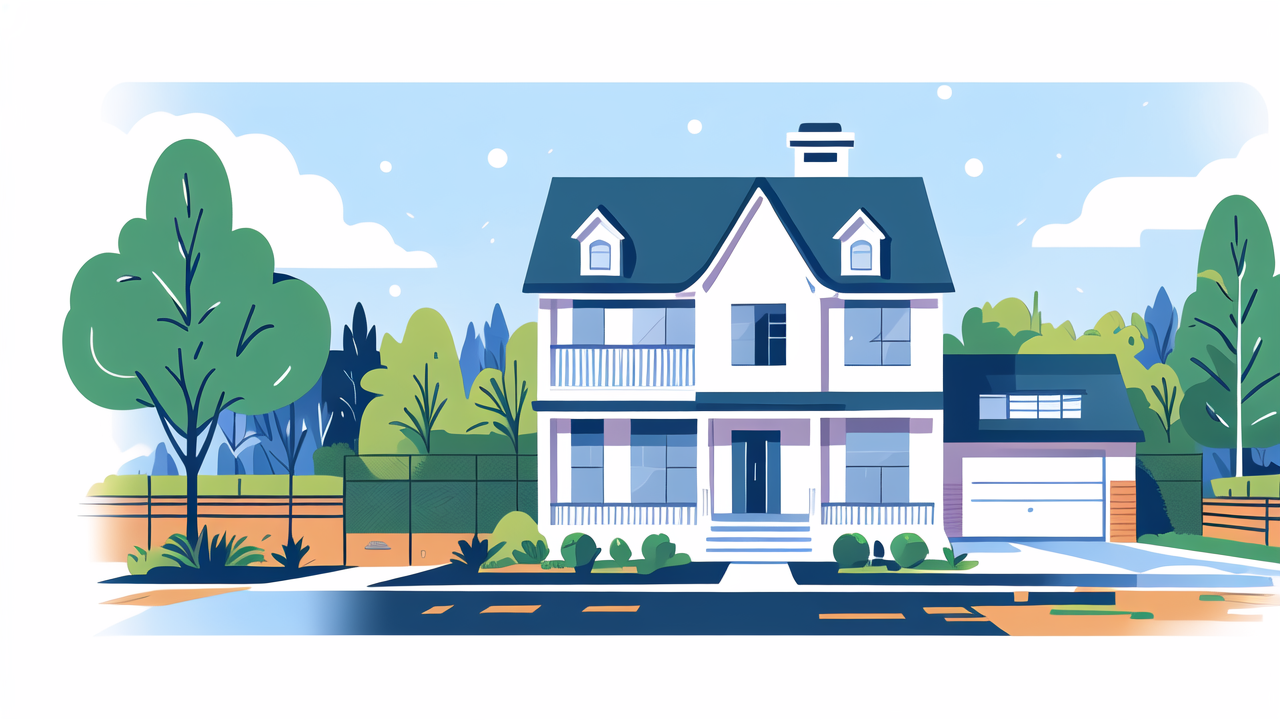The Rise of Black Panel Fences in Residential and Commercial Landscapes
Understanding the Popularity of Black Panel Fences
Black panel fences have become a popular choice for modern homes and businesses. They offer a sleek, contemporary look that fits well with various architectural styles. These fences are known for their clean lines and bold appearance, which can instantly upgrade any property.

One reason for their popularity is their versatility. Black fences work well in both urban and rural settings. They can make a strong statement in a city landscape or blend seamlessly with nature in the countryside. Many people choose black panel fences to create a sophisticated backdrop for their gardens.
Another factor is the way black fences complement other design elements. They provide a perfect contrast to colorful plants and flowers. This makes landscaping pop and creates a visually striking outdoor space. The dark color also hides dirt and wear better than lighter fences, keeping them looking good for longer.
The Role of Black Panel Fences in Modern Landscaping Design
In modern landscaping, black panel fences play a crucial role in defining spaces. They act as a strong visual element that can divide areas or create a cohesive look. Designers often use these fences to frame outdoor living spaces, creating an "outdoor room" feel.
Black fences can also serve as a backdrop for other design features. They make water features, outdoor lighting, and artistic elements stand out more. The neutral black color doesn't compete with other colors in the landscape. Instead, it enhances them by providing a stark contrast.
Many landscapers use black panel fences to create depth in a garden. The dark color can make a space feel larger by visually receding. This trick is especially useful in smaller yards or urban gardens. It can give the illusion of more space while still providing privacy and security.
Key Benefits of Installing Black Panel Fences
Enhancing Property Privacy with Black Panel Fences
Privacy is a top reason many homeowners choose black panel fences. These fences create a solid barrier that blocks views from outside. This is ideal for those who want to enjoy their outdoor space without feeling exposed to neighbors or passersby.

The dark color of black fences adds to the sense of privacy. It creates a visual barrier that's more effective than lighter colored fences. Even when there are small gaps or spaces in the fence design, the dark color makes it harder to see through.
Black panel fences can be designed with varying heights to suit different privacy needs. Taller fences provide maximum seclusion for areas like swimming pools or outdoor living spaces. Shorter sections can be used to define boundaries without completely blocking views.
The Aesthetic Appeal of Black Panel Fences in Outdoor Design
Black panel fences have a strong aesthetic appeal that can enhance any outdoor design. Their sleek, modern look adds a touch of sophistication to residential and commercial properties alike. The clean lines of these fences create a sharp, neat appearance that many find attractive.
One of the biggest advantages of black fences is their ability to make other colors pop. They provide an excellent backdrop for colorful flowers and plants. This contrast can make a garden look more vibrant and well-designed. The dark color also complements hardscaping elements like stone pathways or wooden decks.
These fences can also help create a cohesive look in outdoor spaces. They tie together different elements of a landscape design. Whether paired with modern architecture or more traditional styles, black panel fences add a unifying element to the overall design.
Long-Lasting Durability and Maintenance
Black panel fences are known for their durability and low maintenance requirements. Many are made from materials that resist weather damage, rust, and rot. This means they can withstand various climate conditions without losing their appearance or structural integrity.
The dark color of these fences helps hide dirt, stains, and minor damage. This means they can look good for longer periods between cleanings. When cleaning is necessary, it's usually a simple process. Most black panel fences can be cleaned with just soap and water.
Many manufacturers offer warranties on black panel fences. This shows confidence in the product's longevity. With proper care, these fences can last for many years without needing replacement. This makes them a cost-effective choice for property owners in the long run.
Best Practices for Installing Black Panel Fences in the United States
Local Building Codes and Regulations
Before installing a black panel fence, it's crucial to check local building codes and regulations. These rules can vary widely depending on your location. They may cover aspects like fence height, placement, and materials used. Failing to comply can result in fines or having to remove the fence.

Some areas require permits for fence installation. Check with your local building department to see if this applies to you. They can provide information on the application process and any fees involved. Getting proper permits ensures your fence is legally installed and meets safety standards.
In some neighborhoods, homeowners' associations (HOAs) have additional rules about fences. These might include restrictions on style, color, or height. Review your HOA guidelines carefully before choosing a black panel fence. Getting approval first can prevent conflicts and costly changes later.
Preparation and Installation Tips for Black Panel Fences
Proper preparation is key to a successful black panel fence installation. Start by marking your property lines accurately. This helps avoid disputes with neighbors and ensures your fence is placed correctly. Consider hiring a surveyor if you're unsure about your property boundaries.
When planning your fence layout, think about access points and gates. Make sure gates are wide enough for any equipment or furniture you might need to move through them. Also, consider the terrain. Sloped areas may require special installation techniques to keep the fence level.
Choose high-quality materials for your fence posts and panels. This ensures durability and longevity. If you're not experienced with fence installation, consider hiring a professional. They can ensure the fence is installed correctly and securely, which is especially important for taller fences.
Maintaining Your Black Panel Fence for Optimal Performance
Regular maintenance will keep your black panel fence looking great for years. Inspect your fence periodically for any damage or loose parts. Fix small issues promptly to prevent them from becoming bigger problems. This proactive approach can extend the life of your fence significantly.
Cleaning your black panel fence once or twice a year can keep it looking new. Use a gentle cleaner and soft brush to avoid scratching the surface. Pay special attention to areas where dirt or mold might accumulate. For painted fences, touch up any chips or scratches to prevent rust.
In areas with harsh winters, take extra care of your fence during cold months. Avoid piling snow against the fence when shoveling. Heavy snow can put pressure on the panels and potentially cause damage. Consider using protective measures like snow fencing in areas prone to heavy snowfall.
